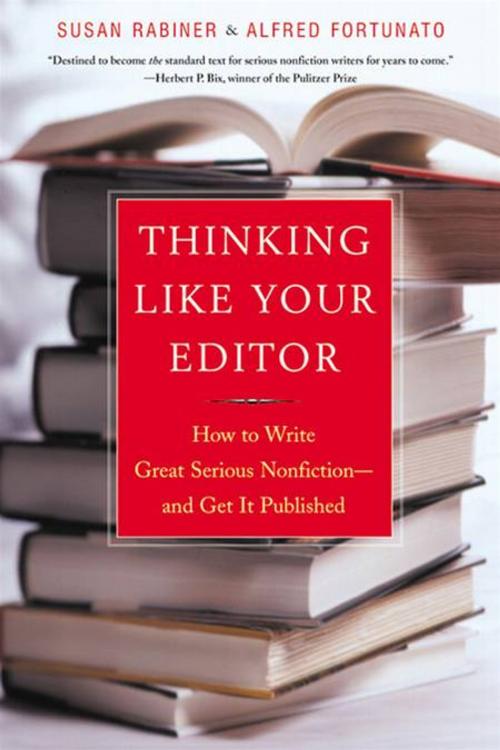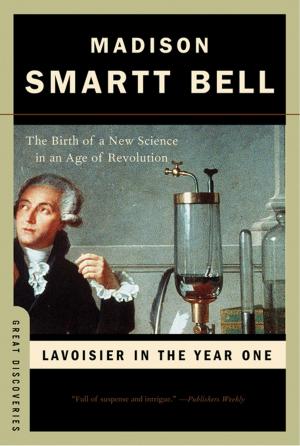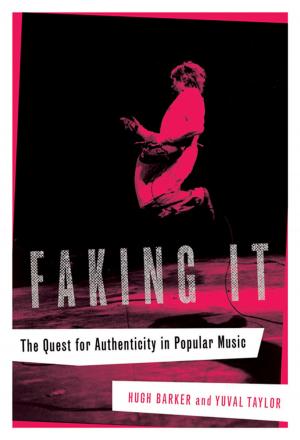Thinking Like Your Editor: How to Write Great Serious Nonfiction and Get It Published
Nonfiction, Reference & Language, Language Arts, Writing & Publishing, Composition & Creative Writing| Author: | Alfred Fortunato, Susan Rabiner | ISBN: | 9780393340211 |
| Publisher: | W. W. Norton & Company | Publication: | September 27, 2010 |
| Imprint: | W. W. Norton & Company | Language: | English |
| Author: | Alfred Fortunato, Susan Rabiner |
| ISBN: | 9780393340211 |
| Publisher: | W. W. Norton & Company |
| Publication: | September 27, 2010 |
| Imprint: | W. W. Norton & Company |
| Language: | English |
Distilled wisdom from two publishing pros for every serious nonfiction author in search of big commercial success.
Over 50,000 books are published in America each year, the vast majority nonfiction. Even so, many writers are stymied in getting their books published, never mind gaining significant attention for their ideas—and substantial sales. This is the book editors have been recommending to would-be authors. Filled with trade secrets, Thinking Like Your Editor explains:
• why every proposal should ask and answer five key questions;
• how to tailor academic writing to a general reader, without losing ideas or dumbing down your work;
• how to write a proposal that editors cannot ignore;
• why the most important chapter is your introduction;
• why "simple structure, complex ideas" is the mantra for creating serious nonfiction;
• why smart nonfiction editors regularly reject great writing but find new arguments irresistible.
Whatever the topic, from history to business, science to philosophy, law, or gender studies, this book is vital to every serious nonfiction writer.
Distilled wisdom from two publishing pros for every serious nonfiction author in search of big commercial success.
Over 50,000 books are published in America each year, the vast majority nonfiction. Even so, many writers are stymied in getting their books published, never mind gaining significant attention for their ideas—and substantial sales. This is the book editors have been recommending to would-be authors. Filled with trade secrets, Thinking Like Your Editor explains:
• why every proposal should ask and answer five key questions;
• how to tailor academic writing to a general reader, without losing ideas or dumbing down your work;
• how to write a proposal that editors cannot ignore;
• why the most important chapter is your introduction;
• why "simple structure, complex ideas" is the mantra for creating serious nonfiction;
• why smart nonfiction editors regularly reject great writing but find new arguments irresistible.
Whatever the topic, from history to business, science to philosophy, law, or gender studies, this book is vital to every serious nonfiction writer.















